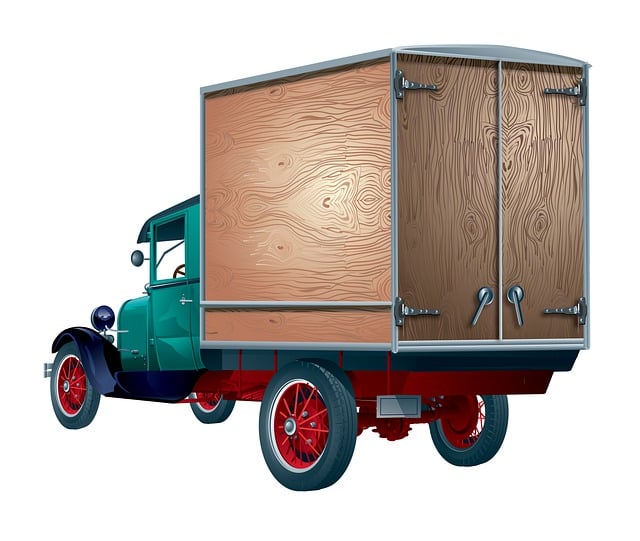Protecting your commercial truck involves understanding Physical Damage Coverage, which insulates against accidents, natural disasters, and unforeseen events, covering repairs or total loss. Business owners should scrutinize policy details, including deductibles and exclusions, to safeguard their investment, preserving truck value and ensuring business continuity. Comprehensive insurance with physical damage coverage minimizes risks, offering peace of mind and protecting your asset from unexpected costs, vandalism, and accidents.
Protecting your truck is paramount, whether it’s a valuable asset or a crucial business tool. In this comprehensive guide, we’ll explore how to safeguard your investment against potential risks. We delve into essential aspects like understanding physical damage coverage for trucks, highlighting the significance of treating your vehicle as a business asset, and detailing components of comprehensive insurance. Additionally, discover strategies to minimize hazards and maximize protection for your commercial fleet.
Understanding Physical Damage Coverage for Trucks

Protecting your truck involves understanding the nuances of insurance coverage, especially Physical Damage Coverage. This type of coverage is designed to safeguard your vehicle against various forms of physical harm, which can be particularly important for business owners relying on their trucks as essential tools. It typically includes protection from accidents, natural disasters, and other unforeseen events that could damage your truck.
Physical Damage Coverage can cover repairs or even total loss scenarios, ensuring you’re not left with a significant financial burden. When considering insurance options, business owners should scrutinize the policy’s deductibles, coverage limits, and specific exclusions to ensure they have adequate protection for their investment. This proactive step will help maintain the value of your truck and safeguard your business operations.
Why Protect Your Truck as a Business Asset?

Protecting your truck goes beyond simply ensuring it’s roadworthy; it’s an essential investment in your business’s future. In today’s world, where operations often rely heavily on fleet vehicles, a truck isn’t just a mode of transport—it’s a critical asset that contributes to revenue generation. Therefore, safeguarding it from potential physical damage coverage is paramount.
Consider the economic impact of an accident or natural disaster. Without adequate protection, these events can lead to costly repairs or even total vehicle loss. Physical damage coverage plays a pivotal role in mitigating these risks, providing financial security and ensuring your truck remains a reliable business tool. This protection extends beyond the vehicle itself, offering peace of mind by safeguarding your investment and enabling you to focus on growing your business without unexpected interruptions.
Essential Components of Comprehensive Truck Insurance

Protecting your truck, whether it’s a personal asset or a crucial business tool, starts with comprehensive insurance. At its core, this includes physical damage coverage, which safeguards against unforeseen events like accidents, natural disasters, or vandalism. This component ensures that if your truck incurs repairable or even total damage, you’re not left bearing the financial burden alone.
Beyond physical damage coverage, comprehensive insurance often includes additional protections like liability coverage, which protects you from claims arising from accidents where you’re at fault. It also may offer rental reimbursement during times when your truck is in repairs, ensuring continuity for your business operations or personal use.
Strategies to Minimize Risks and Maximize Protection

To protect your truck as both an asset and a business tool, minimizing risks is key. One effective strategy is to ensure comprehensive insurance that includes physical damage coverage. This protects against accidents, natural disasters, and vandalism, which can significantly reduce financial losses. Regularly maintaining your vehicle is another crucial step; well-maintained trucks are less prone to breakdowns and accidents. Keeping detailed records of all maintenance and repairs not only aids in budgeting but also serves as evidence of responsible ownership in case of claims.
Additionally, implementing security measures like locks, alarms, and GPS tracking systems can deter theft and vandalism. Storing your truck in a secure location when not in use is also essential. Garage space or well-lit, fenced areas make it harder for unauthorized individuals to access your vehicle. Regularly updating and backing up important documents, including registration, insurance policies, and maintenance records, ensures that you’re prepared for any eventuality and can quickly resolve issues that may arise.
Protecting your truck, whether it’s a valuable asset or a crucial business tool, is essential. By understanding physical damage coverage for trucks and implementing comprehensive insurance strategies, you can minimize risks and ensure peace of mind on the road. Remember, a well-protected vehicle means less financial strain in the event of unforeseen circumstances, allowing you to focus on what matters most: your business success.
